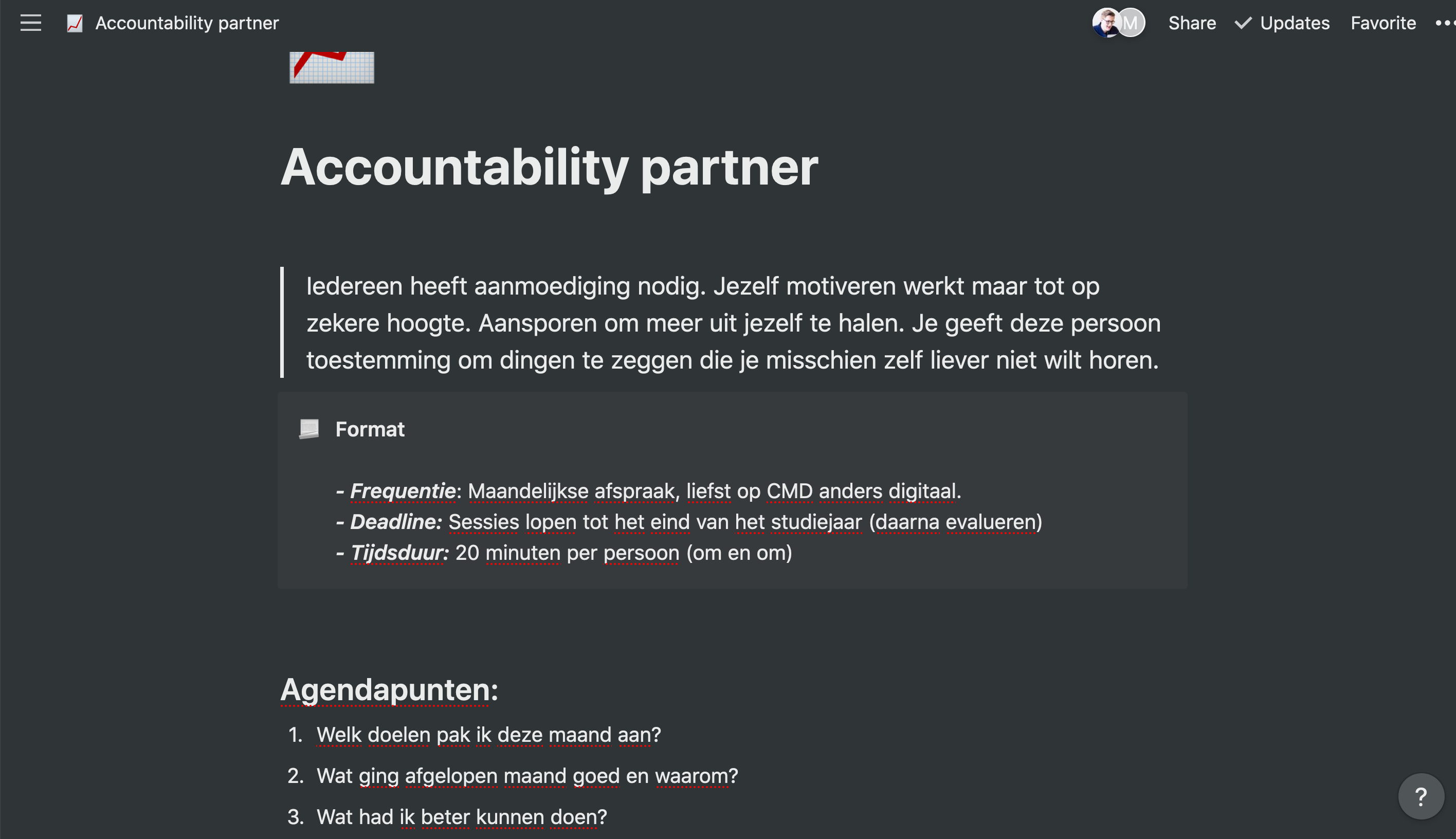Accountabilibuddy
Everyone needs encouragement. Motivating yourself only works to a certain extent. An accountability partner encourages you to get more out of yourself.
If you're struggling to reach your own goals an accountability partner might work. With an accountability partner, you are much more likely to stay on course. Talking with another like-minded person about my goals gives me a set of eyes, ears, and experiences that can change my view or offer new suggestions.
A partner can comment about the process, what went well, or could have been done better but at the end of the day they are your own goals.
My Partner ¶
Taking that first step in finding a partner sounds daunting at first. To me it felt like quite an investment to look for people in your network and ask them for their time. In the end, you shouldn't worry about how much time it costs to find a partner. It takes some time to find the right partner, invest in preparing the sessions and giving feedback afterward but you also get all this value you give in return.
Miranda Endhoven is a colleague at CMD Amsterdam and runs Mediabear a digital agency that helps entrepreneurs to become visible on the (quite saturated) web and to grow their business through handy, online tools. We started chatting after we both talked about a couple of books we've read and how we both were heavily influenced by Grip from Rick Pastoor.
To quote Rick Pastoor from Grip
You give this person permission to say things you may not want to hear.
That immediately sums up what is so powerful about a partner, especially one that isn't a close friend or family member. Asking each other (positive) critical questions is what makes this work. They should be allowed to ask any questions even if they are confronting. Pick a partner that tells you the truth.
The 'rubber ducking' part of it is the other main reason this works for me, having somebody to report to. Sometimes saying my goals out loud, talking trough my problems gives me new ideas on the spot.
How we work ¶
We meet about every month trough a video call. Each of us talks 20 minutes about how their month went and what goals to focus on for the next month. We felt like monthly meetings and monthly goals work best, quarterly targets where to long and weekly or bi-weekly meetings were a bit short in time frame.

Each meeting has a standard format, we ask each other roughly the following same three questions:
- What went well last month and why?
- What could I have done better?
- What goals do I work on this month?
Additionally, we talk about work-life balance and our general feelings. It's also a good idea to discuss your no-go zones: topics you don't want to talk about. We decided that talking about our daily work as teachers and our financial situation wasn't all that relevant.
We try to stick to the agenda and the above questions, the more structure the better. Those boundaries are powerful especially for the 20-minute time frame we have.
During the session we take notes while the other person is speaking and add that to the Notion page, it's a nice archive of things we've talked about. I also noticed I listen more actively if I typed along. Make sure it isn't a full transcript of the conversation, the bullet points are enough.
One last note; your partner can change your view but you don't want to turn this into a 'coaching' session, you'll want to equal the playing field.
Give it a try, it might work for you as well.
— Danny de Vries